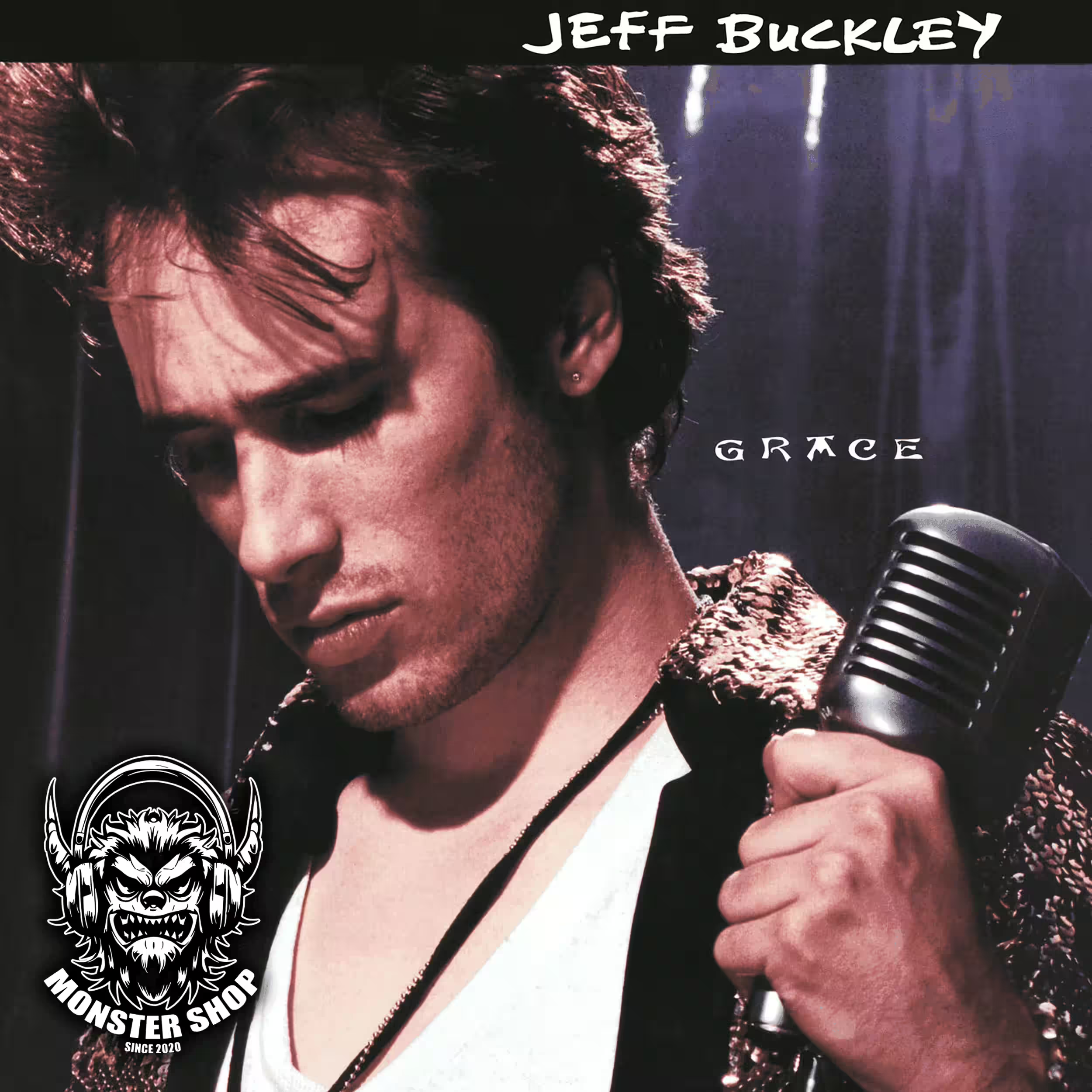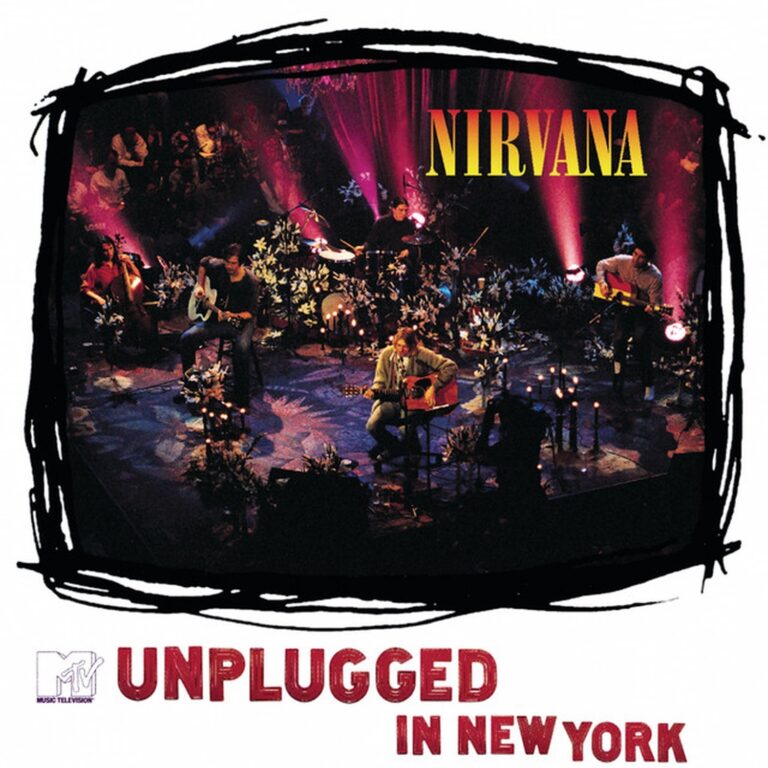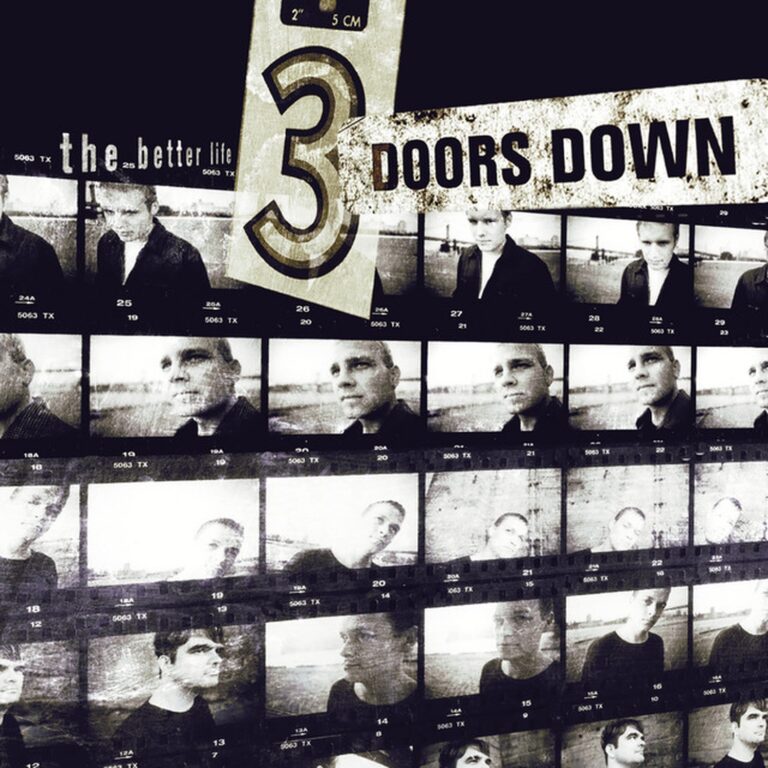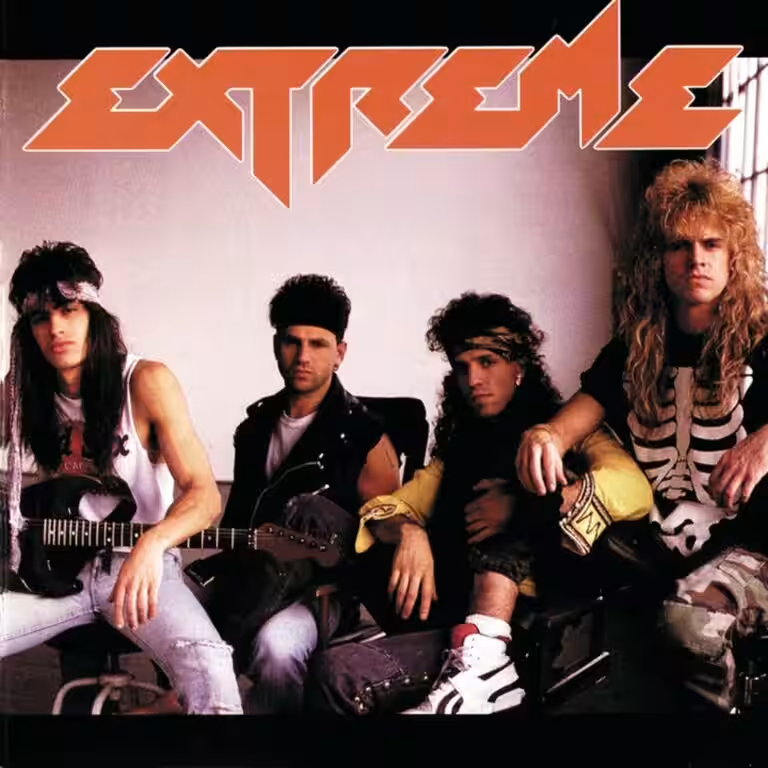
Introduction
Sometimes, an album emerges that shifts the musical landscape, yet its impact only becomes clear years after its release. Grace by Jeff Buckley is such an album. When it first arrived in August 1994, its blend of haunting vocals, sweeping arrangements, and emotional intensity confused some and captivated others. Today, it stands as one of the most beloved and influential records of the 1990s. In this article, I’ll take you through every aspect of Grace: its origins, recording process, songs, meaning, and the legacy it left behind. Whether you’re new to Jeff Buckley or know every lyric by heart, you’ll find fresh insights and stories here.
We’ll start with the key facts and statistics about the album, then trace Jeff’s journey up to Grace. You’ll discover how the record was made, the people behind it, and the equipment used in the studio. I’ll also look at its commercial performance, critical reception, and how it sits alongside other important albums of 1994. After that, I’ll dive into a detailed analysis of every track, their meanings, and the stories behind the lyrics. We’ll explore how Grace was promoted, the tours that followed, and the artists it influenced. I’ll also share five fascinating facts about the album, examine its use in film and TV, and round up the most notable reviews. Finally, we’ll look at what happened to Jeff Buckley after Grace, and consider the album’s place in music today.
| Attribute | Details |
|---|---|
| Release date | 15 August 1994 (Europe), 23 August 1994 (US) |
| Album title | Grace |
| Genre | Alternative rock, folk rock, jazz-rock |
| Total runtime | 51:48 |
| Number of tracks | 10 (original release) |
| Record label | Columbia Records |
| Recording studio | Bearsville Studios, Woodstock, New York |
| Producer(s) | Andy Wallace (album), Jeff Buckley (producer on “So Real”) |
Grace didn’t storm the charts on arrival. In fact, it peaked at just #149 on the US Billboard 200, spending only seven weeks there. Yet, over time, it sold over two million copies worldwide, earned Platinum in the US and UK, and became a touchstone for musicians and fans. Bob Dylan called Buckley “one of the great songwriters of this decade.” David Bowie said Grace was “the best album ever made.” Rolling Stone has included it in three editions of its 500 greatest albums list. Grace is now studied, covered, and referenced by artists across genres.
Producer Andy Wallace, who also worked on Nirvana’s Nevermind, said: “Musicians now come up to me and cite Jeff Buckley as an influence. It’s amazing how his sound has endured.” As Jeff himself once explained, “Grace is what matters in anything—especially life, especially growth, tragedy, pain, love, death. That’s a quality I admire very greatly. It keeps you from destroying things too foolishly. It sort of keeps you alive.”
If you want to listen to our in-depth podcast episode about Grace, you can find it here:
The Genesis of “Grace”
To understand Grace, you need to know where Jeff Buckley came from. By the early 1990s, the musical world was changing fast. Grunge was king, Britpop was rising, and alternative rock was everywhere. Jeff Buckley, though, was cut from a different cloth. Born in 1966, the son of singer-songwriter Tim Buckley, Jeff grew up in California surrounded by music but distanced from his father, whom he met only once. He absorbed everything: Led Zeppelin, Nina Simone, Queen, Qawwali singer Nusrat Fateh Ali Khan, and the raw blues of Robert Johnson. His early years saw him playing as a session guitarist, dabbling in jazz, reggae, and even heavy metal.
By 1991, Buckley had moved to New York, performing in the East Village’s Sin-é café. These solo shows became legendary, mixing originals with covers from Bob Dylan, Edith Piaf, and The Smiths. He built a following with his unique voice and emotional intensity. Columbia Records signed him in October 1992 after a fierce bidding war, offering a three-album deal worth nearly $1 million. Jeff soon formed a band with bassist Mick Grøndahl, drummer Matt Johnson, and later guitarist Michael Tighe. He also collaborated with Gary Lucas, co-writing “Grace” and “Mojo Pin.”
As Buckley assembled the team for Grace, he drew on his live experiences, but wanted to push further in the studio. The main creative contributors included Jeff himself (vocals, guitar, producer on “So Real”), Mick Grøndahl (bass), Matt Johnson (drums), Michael Tighe (guitar on “So Real”), and Gary Lucas (guitar on “Grace” and “Mojo Pin”). Guest musicians such as Loris Holland (organ), Misha Masud (tabla), and Karl Berger (string arrangements) also played vital roles.
Here’s a look at the core band and their roles:
| Band Member | Instrument(s) and Role |
|---|---|
| Jeff Buckley | Vocals, guitars, harmonium, organ, dulcimer, tabla (on “Dream Brother”), producer (“So Real”) |
| Mick Grøndahl | Bass |
| Matt Johnson | Drums, percussion, vibraphone (on “Dream Brother”) |
| Michael Tighe | Guitar (on “So Real”) |
| Gary Lucas | Guitar (on “Grace” and “Mojo Pin”) |
| Loris Holland | Organ (on “Lover, You Should’ve Come Over”) |
| Misha Masud | Tabla (on “Dream Brother”) |
| Karl Berger | String arrangements |
Columbia Records financed the album, with a total budget reported near $200,000. There were financial worries: Buckley insisted on creative control, which meant longer studio time and more expense. At one point, recording stopped for several days after Buckley was rattled by a negative review comparing his voice to Michael Bolton’s. Still, the label let him follow his vision.
The album title, Grace, reflected Buckley’s fascination with the idea of transformation, forgiveness, and beauty in pain. The word never appears in the lyrics, but the feeling runs through every track. The cover photo, shot by Merri Cyr, shows Buckley eyes closed, holding a microphone, wearing a sequined jacket from a thrift shop. He was listening to playback of “Dream Brother” at the time. Columbia’s executives disliked the cover, but Buckley rejected all alternatives, sticking to his vision.
Recording Process
Bearsville Studios in Woodstock, New York, was chosen for its isolation and top-class facilities. The main sessions ran from late 1993 through early 1994. The studio’s two rooms—Studio A, a large, open space, and Studio B, a tighter mixing room—offered flexibility. Studio B featured an SSL 4000E console, well known for its punchy sound and reliability. The goal was to create an environment where Buckley could experiment and feel comfortable, away from outside distractions.
Producer Andy Wallace was brought in for his experience blending rock, jazz, and alternative sounds. He’d just finished working on Nevermind by Nirvana and had credits with Sonic Youth, Rage Against the Machine, and Ben Folds. Wallace and Buckley spent weeks experimenting with arrangements and takes, sometimes recording more than 20 versions of a single song. For example, Buckley’s version of “Hallelujah” was built from over 20 takes, with the final version pieced together for maximum emotional effect. Jeff produced “So Real” himself, preferring a rawer, less polished approach.
The studio hardware used for Grace included some of the best gear of the time. Here’s a summary of what was likely in use, based on studio records and musician accounts:
| Hardware/Instrument | Details/Role |
|---|---|
| Console | SSL 4000E (Studio B) |
| Microphones | Neumann U87, Shure SM57, AKG C414 (vocals, guitars, drums) |
| Guitars | 1983 Fender Telecaster “Top Loader”, 1976 Gibson Les Paul Custom, Rickenbacker 360/12 |
| Amps | Fender Vibroverb, Mesa Boogie Dual Rectifier Trem-o-verb Combo |
| Effects | Alesis Quadraverb rack unit (reverb, especially on “Hallelujah”) |
| Other | Guild F-50 acoustic, vintage Gibson L-1 acoustic, Series 10 Telecaster replica (“flower guitar”) |
The sessions were intense. At one point, Columbia worried Buckley was wasting time and money. There were also creative disputes, especially when Buckley insisted on replacing the track “Forget Her” with “So Real,” which he felt better captured the band’s sound. Wallace and Buckley clashed occasionally, but both respected each other’s vision. The final album was a blend of improvisation and painstaking detail.
Andy Wallace’s discography is extensive. Here’s a selection of other albums he produced, engineered, or mixed (excluding Grace):
| Producer | Artist | Album | Year |
|---|---|---|---|
| Andy Wallace (mixing) | Nirvana | Nevermind | 1991 |
| Andy Wallace (mixing) | Rage Against the Machine | Rage Against the Machine | 1992 |
| Andy Wallace (mixing) | Faith No More | Angel Dust | 1992 |
| Andy Wallace (mixing) | Sonic Youth | Dirty | 1992 |
| Andy Wallace (mixing) | Slayer | Seasons in the Abyss | 1990 |
Commercial Performance and Reception
When Grace was released, it did not make a big commercial splash. It entered the US Billboard 200 at #149 and stayed there for just seven weeks. By the time of Buckley’s death in 1997, it had sold around 175,000 copies in the US. The album fared better overseas: in Australia, it reached #9 and achieved 8× Platinum (560,000 sales). In the UK, it peaked at #31 and has since gone double Platinum (600,000 sales). Posthumously, Grace saw a surge in sales, eventually passing two million worldwide. In 2016, it was certified Platinum in the US (1,060,000 sales).
Here’s a look at Jeff Buckley’s studio albums, including sales data where available:
| Album | Year | Sales Data |
|---|---|---|
| Grace | 1994 | US: Platinum (1,060,000), UK: 2× Platinum (600,000), Australia: 8× Platinum (560,000), France: 2× Gold (200,000), Worldwide: 2 million+ |
| Sketches for My Sweetheart the Drunk | 1998 | N/A |
Grace won numerous awards and accolades. It was ranked #75 in a 1998 Q Magazine poll, and #13 in 2005. Mojo named it the #1 Modern Rock Classic in 2006. Rolling Stone placed it at #303 (2003), #304 (2009), and #147 (2020) in its 500 Greatest Albums list. In 2014, Buckley’s “Hallelujah” was inducted into the US Library of Congress National Recording Registry. The album also received Platinum and Gold certifications across several countries.
In 1994, several landmark albums were released by similar artists. Here are some notable examples:
Grace received many awards and recognitions, including Platinum status in the US and UK, multiple “greatest album” rankings, and inclusion in the Library of Congress. Its legacy has only grown over time, as more listeners and musicians discover its depth and artistry.
1994 was a landmark year for heavy music. It saw the release of albums like Korn by Korn, Burn My Eyes by Machine Head, Far Beyond Driven by Pantera, and Divine Intervention by Slayer. Bands like Lamb of God, Rammstein, Muse, and System of a Down formed. At the same time, Nirvana disbanded after Kurt Cobain’s death. The year marked the mainstream breakthrough of alternative and heavy music, with albums like Grace holding their own among giants.
Track Analysis
The singles from Grace were “Grace” (August 1994), “Last Goodbye” (January 1995), “So Real” (June 1995), and “Eternal Life” (August 1995). Each single showcased a different side of Buckley’s songwriting, from the soaring title track to the driving rock of “Eternal Life.” Commercially, none were major hits at first, but all have become classics over time. The songwriting credits include Buckley, Gary Lucas, Michael Tighe, and others, with three covers: “Lilac Wine,” “Corpus Christi Carol,” and “Hallelujah.”
Below is a detailed table of every song from the album, including writing credits and lengths. Singles are marked with a *.
| Track Name | Length | Writing Credit |
|---|---|---|
| Mojo Pin | 5:42 | Jeff Buckley, Gary Lucas |
| Grace* | 5:22 | Jeff Buckley, Gary Lucas |
| Last Goodbye* | 4:35 | Jeff Buckley |
| Lilac Wine | 4:32 | James Shelton |
| So Real* | 4:43 | Jeff Buckley, Michael Tighe |
| Hallelujah | 6:53 | Leonard Cohen |
| Lover, You Should’ve Come Over | 6:43 | Jeff Buckley |
| Corpus Christi Carol | 2:56 | Traditional, arranged by Benjamin Britten |
| Eternal Life* | 4:52 | Jeff Buckley |
| Dream Brother | 5:26 | Jeff Buckley, Mick Grøndahl, Matt Johnson |
| Forget Her* | 5:12 | Jeff Buckley |
Note: Songs marked with * were released as singles. Chart data: “Grace,” “Last Goodbye,” “So Real,” and “Eternal Life” were all released as singles, but none broke into the US Top 40. “Last Goodbye” reached #88 in the UK. “Forget Her” was released as a single from the Legacy Edition.
Song Meaning and Lyrics
The lyrics of Grace are layered, poetic, and deeply personal. The singles in particular carry a strong emotional weight. “Grace” is about saying goodbye to a lover, inspired by Buckley’s own experiences. The lyrics “There’s the moon asking to stay / Long enough for the clouds to fly me away / Well it’s my time coming, I’m not afraid, afraid to die” reflect both acceptance and longing (source). Buckley explained, “Grace is what matters in anything—especially life, especially growth, tragedy, pain, love, death.” The repeated line “Wait in the fire” is about enduring pain to reach transformation.
“Last Goodbye” tells of a relationship ending, with the line “This is our last goodbye / I hate to feel the love between us die.” Fans often debate the meaning of “I’m not with you but of you,” interpreting it as a deep connection that lingers after parting (Reddit). “So Real” explores the fine line between love and fear, with Buckley singing, “I love you but I’m afraid to love you. Oh, that was so real.” (Reddit).
“Eternal Life” stands out for its anger and social commentary. Buckley questions violence and hatred, asking, “What is love? Where is happiness? What is life? Where is peace? When will I find the strength to bring me release?” (Reddit). “Forget Her,” added on the Legacy Edition, is about heartbreak and the struggle to move on, with the chorus, “Don’t fool yourself / She was heartache from the moment that you met her.” (Musixmatch)
Buckley’s writing process was highly collaborative. Gary Lucas co-wrote “Grace” and “Mojo Pin,” while Michael Tighe brought the music for “So Real.” The covers—“Lilac Wine,” “Corpus Christi Carol,” and “Hallelujah”—show Buckley’s ability to reinterpret songs and make them his own. The “Hallelujah” cover, inspired by John Cale’s version, has become one of the most famous renditions ever recorded.
Touring and Promotion of Grace
The promotion of Grace was a mix of old-school touring and modern marketing. Columbia released four singles, each with music videos and radio campaigns. Buckley performed on television, including the BBC and MTV. His live performances were legendary, ranging from delicate solo sets to full-band explosions. The album was promoted through a lengthy tour that lasted over 18 months.
The Grace tour kicked off in the US in June 1994 and covered North America, Europe, Japan, and Australia. Notable performances included a sold-out show at Paris Olympia and a mid-afternoon slot at the Reading Festival just five days after the album’s release. Buckley played more than 100 shows, often with little rest. His UK solo tour in March 1994 was especially important, laying the groundwork for his later success there.
Buckley shared stages with a variety of artists during 1994, though he usually headlined his own shows. His setlists were unpredictable, mixing album tracks, covers, and improvisations. He played alongside bands like The Cranberries and appeared at major festivals, but preferred smaller, more intimate venues where he could connect with the audience.
Influences and Legacy
Grace is a melting pot of influences. Buckley cited artists like Led Zeppelin, Nina Simone, Nusrat Fateh Ali Khan, Joni Mitchell, Bob Dylan, and The Smiths as shaping his sound. He drew on jazz, folk, classical, and rock traditions, creating something unique.
Here’s a table showing the key influences on Grace and the artists who were later influenced by it:
| Influences on “Grace” | Artists Influenced by “Grace” |
|---|---|
| Led Zeppelin | Thom Yorke (Radiohead) |
| Nina Simone | Matt Bellamy (Muse) |
| Nusrat Fateh Ali Khan | Chris Martin (Coldplay) |
| Joni Mitchell | Adele |
| The Smiths | Bat For Lashes |
| Bob Dylan | Lana Del Rey |
| Billie Holiday | Anna Calvi |
Grace came out in 1994, a year full of major world events. Nelson Mandela became president of South Africa. The Channel Tunnel opened, linking Britain and France. The TV show Friends aired its first episode. Films like Pulp Fiction and Forrest Gump hit cinemas. Sony released the first PlayStation. The UK’s National Lottery began. In music, Definitely Maybe by Oasis and Dookie by Green Day were released, marking a new era for rock and pop. The world was changing fast, and Grace captured that sense of possibility and uncertainty.
Five Things About Grace
Here are five facts about Grace that every fan should know, all verified from multiple sources:
| Fact | Details |
|---|---|
| Buckley’s main guitar was a 1983 Fender Telecaster “Top Loader” | It featured a custom mirror pickguard and a Seymour Duncan Hot Rails pickup. After Buckley’s death, Muse’s Matt Bellamy bought the guitar. |
| The album cover was shot by Merri Cyr | Buckley wore a sequined jacket from a thrift shop. He was listening to “Dream Brother” during the shoot. |
| Three cover songs are included | “Lilac Wine,” “Corpus Christi Carol,” and “Hallelujah” were chosen because Buckley felt he lacked enough original material. |
| “Forget Her” was dropped at the last minute | Columbia wanted it on the album, but Buckley replaced it with “So Real.” “Forget Her” was released later on the Legacy Edition. |
| David Bowie called Grace the best album ever made | Bowie included it in his list of ten “desert island records.” |
Media and Television Usage
Many songs from Grace have appeared in film and television. Here’s a table of known uses, based on data from Tunefind:
| Song Title | Media | Year |
|---|---|---|
| Hallelujah | The West Wing (S3E22), Vanilla Sky, House M.D. (S2E1), The OC (S1E2, S1E27), Lord of War, The Young Pope (S1E7), 9-1-1: Lone Star (S2E2), Fifty Shades Darker | 2001–2023 |
| Last Goodbye | Sex Education (S4E7), Vanilla Sky | 2001, 2023 |
| Lilac Wine | One Day (S1E14) | 2024 |
| Lover, You Should’ve Come Over | Alias (S1E19), Spinning Out (S1E6), FlashForward (S1E3) | 2002–2020 |
| Mojo Pin | My Mad Fat Diary (S2E7) | 2014 |
Critical Reviews and Retrospectives
When Grace first came out, reviews were mixed. Some critics found the album too ornate or self-indulgent. Rolling Stone criticised its arrangements and called Buckley’s “Hallelujah” not desperate enough. Robert Christgau of The Village Voice said Buckley’s influences were too obvious. Yet, many reviews were glowing. Entertainment Weekly called it “dreamy and original.” The Guardian described it as a “stunning debut.” Chicago Tribune praised its “soulful intensity.” Over time, the album’s reputation soared, and it is now widely seen as a classic.
Here’s a summary table of notable reviews and their scores:
| Publication | Score | Notable Quote | Link |
|---|---|---|---|
| Entertainment Weekly | A | “Dreamy and original.” | Read |
| The Guardian | 5/5 | “A stunning debut.” | Read |
| Chicago Tribune | 4/4 | “Soulful intensity.” | Read |
| Rolling Stone | 3/5 | “Ornate arrangements… not desperate enough.” | Read |
After Grace
After Grace, Buckley’s career was on the rise. He toured constantly, gaining fans worldwide. In 1996, he began work on his second album, My Sweetheart the Drunk, with producer Tom Verlaine. Sessions in New York and Memphis produced several new songs, but Buckley was dissatisfied and planned to return to Andy Wallace for more recording. Tragically, on 29 May 1997, Buckley drowned while swimming in the Wolf River in Memphis. His body was found six days later. He was 30 years old.
After his death, Columbia released Sketches for My Sweetheart the Drunk in 1998, featuring unfinished tracks and demos. Several live albums and box sets have followed. Buckley’s influence has only grown, with tributes, documentaries, and even a biopic, It’s Never Over, Jeff Buckley, premiering at Sundance in 2025. His estate has carefully managed his legacy, choosing quality over quantity in posthumous releases.
As of April 2025, Buckley’s music remains as powerful as ever. There are no new albums or tours planned, but his official website and social media channels continue to share archival material and connect with fans worldwide.
Remasters and Reissues
No information about remasters or reissues of Grace is available in the current data sources. If new editions or box sets are released, they will be covered in future updates.
Conclusion
Grace is not just an album; it’s a work of art that continues to inspire and move listeners decades after its release. Its blend of rock, folk, jazz, and soul, along with Buckley’s remarkable voice, make it a unique listening experience. The album’s themes of love, loss, longing, and transcendence are as relevant today as they were in 1994. For many, Grace is the gold standard of emotional honesty in music. Its influence can be heard in the work of countless artists, and its songs remain fixtures in film, television, and popular culture. Jeff Buckley’s legacy is secure, and Grace remains a vital part of the story of modern music.
Further Reading
For more on Jeff Buckley and related music:
- The Making of Temple Of The Dog by Temple Of The Dog (blog article)
- The Making of Nevermind by Nirvana (blog article)
- Dookie: Green Day’s Iconic Punk Rock Revolution (blog article)
- Unpacking OK Computer: Radiohead’s Sonic Revolution (blog article)
- In Utero: Nirvana’s Defiant Grunge Anthem (blog article)
- Grace by Jeff Buckley: An Enduring Musical Legacy (blog article)
- Wikipedia page for Grace
- Official Jeff Buckley website
- Columbia Records website
Let us know in the comments what your thoughts are on Grace by Jeff Buckley. Did we miss anything? Share your experiences and join the conversation!



